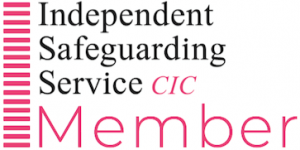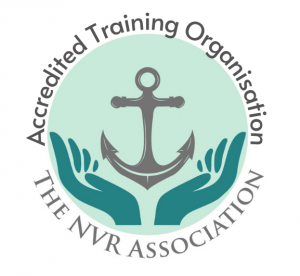Training Policies
PartnershipProjects is a member of the Independent Safeguarding Service CIC.


PartnershipProjects Appeals Policy
We at the PartnershipProjects UK Ltd provide a formal route for our learners wishing to appeal against an assessment decision. All learners are assessed against the relevant learning outcomes for the course and regulating organisation criteria, where applicable. Assessment decisions are made by internal Assessors.
PartnershipProjects Complaints Policy
PartnershipProjects UK Ltd recognises the importance of learner complaints and welcomes complaints as a valuable form of feedback about its services. We are committed to using the information we receive to help drive forward improvements.
This procedure outlines the aims of PartnershipProjects UK Ltd in dealing with complaints and sets out what you as the customer can expect when making a complaint regarding a service.
A complaint is a way of letting us know that you are not happy with a particular service. We welcome your feedback. A complaint may be about delay, lack of response, discourtesy, failure to consult or about the standard of service you have received.
So please let us know if:
- you think we have done something wrong
- we have not done something that we said we would do
- you are not satisfied with a particular service or set of services that we provide
PartnershipProjects Course Content Review Policy
PartnershipProjects UK Ltd takes the standard of its courses very seriously. For this reason, the below policy sets out how we ensure the standards of our service is maintained.
Course reviews are an integral part of PartnershipProjects UK Ltd quality assurance process.
The focus of course reviews is on:
- The appropriateness of the content and assessment method in order to achieve the learning outcomes,
- The course content being up to date and accurate.
PartnershipProjects Data Protection Act Policy
This Policy sets out the obligations of PartnershipProjects UK Ltd, (“the Company”), regarding data protection and the rights of customers and business contacts (“data subjects”) in respect of their personal data under Data Protection Act 2018 (Formally EU Regulation 2016/679 General Data Protection Regulation (“GDPR”)).
The Data Protection Act 2018 defines “personal data” as any information relating to an identified or identifiable natural person (a “data subject”); an identifiable natural person is one who can be identified, directly or indirectly, in particular by reference to an identifier such as a name, an identification number, location data, an online identifier, or to one or more factors specific to the physical, physiological, genetic, mental, economic, cultural, or social identity of that natural person.
This Policy sets the Company’s obligations regarding the collection, processing, transfer, storage, and disposal of personal data. The procedures and principles set out herein must be followed at all times by the Company, its employees, agents, contractors, or other parties working on behalf of the Company.
The Company is committed not only to the letter of the law, but also to the spirit of the law and places high importance on the correct, lawful, and fair handling of all personal data, respecting the legal rights, privacy, and trust of all individuals with whom it deals.
PartnershipProjects Equal Opportunities Learner’s Charter
“Everyone has a part to play in ensuring we achieve equality of opportunity. We believe that a positive attitude towards equality and diversity is right for our people, our clients and our business suppliers. This means that we must encourage all our people to welcome diversity and respect each person’s individuality”.
PartnershipProjects UK Ltd is committed to ensuring that the admissions process will be open and transparent, and that no individual or group receives less favourable treatment by virtue of age, disability, economic status, faith, gender, marital status, sexuality, race, colour, and nationality, ethnic or national origin.
PartnershipProjects Malpractice Policy
PartnershipProjects UK Ltd treats all cases of suspected malpractice* very seriously and will investigate all suspected and reported incidents of possible malpractice.
The purpose of this Policy and Procedure is to set out how allegations of malpractice in relation to all PartnershipProjects UK Ltd’s training assessments and training events are dealt with.
The scope of the policy is to provide:
- a definition of malpractice
- examples of learner and centre malpractice and maladministration;
- possible sanctions that may be imposed in cases of
*The term ‘malpractice’ in this policy is used for both malpractice and maladministration.
PartnershipProjects Reasonable Adjustment Policy
PartnershipProjects UK Ltd has a duty under the Equality Act 2010 to make any reasonable adjustments that can be made for our learners to ensure they are not discriminated against.
We aim to facilitate open and fair access to our training for learners who are eligible for reasonable adjustments and / or special considerations without compromising the assessment of skills, knowledge, understanding or competence being measured.
PartnershipProjects Safeguarding Learner Policy
All staff working with children and vulnerable adults have a legal duty to work together to protect them from harm or abuse. PartnershipProjects UK Ltd Safeguarding Lead has overall responsibility for the safeguarding of learners, and is responsible for ensuring the effectiveness of all work done to safeguard and promote the welfare of children and young people on their training programmes.
PartnershipProjects UK Ltd Policy covers:
- The recruitment and employment of staff working with vulnerable adults and the provision of a safe learning environment under the requirements of this act
- Our Operational Director is responsible for ensuring that PartnershipProjects UK Ltd follows safer recruitment procedures (See Safer Recruitment Policy: https://www.partnershipprojectsuk.com/wp-content/uploads/2022/01/Safer-Recruitment-Policy-Mar-2021.pdf).
- This includes carrying out Disclosure and Baring checks on all staff working with vulnerable learners every three years. This also applies where staff and associates have already been checked by a previous
